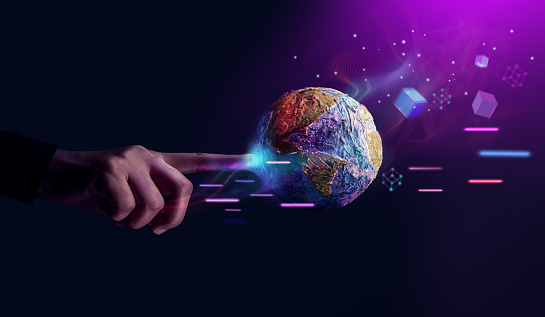Music Licensing in the web3 environment is an exciting new development. It has the potential to revolutionize the way music is created, distributed, and monetized. Hoopr believes that web3-based music licensing solutions can be a partner in creating a fairer and more efficient music ecosystem for everyone involved.
While we are still behind in addressing the challenges of interoperability, scalability, and standard in Web3, let us understand what Music Licensing in Web3 means.
Music licensing is obtaining permission to use a piece of music for a specific purpose, such as in a film, television show, video game, or commercial. The process of obtaining a license for music is typically done through a music licensing agency or directly from the rights holder of the music, such as the songwriter or music publisher.
Several music licenses can be obtained, depending on the intended use of the music. For example, you require a synchronization license when you need to use a piece of music in conjunction with visual media, such as a film or television show. A performance license is required when a piece of music is performed live or broadcast on television or radio. And you need a mechanical license when you use music on a physical recording, such as a CD or vinyl record.
Obtaining a music license can be complex, as it involves navigating a complex web of copyright laws and regulations. This is why many creators and businesses choose to work with a music licensing agency, which can help to navigate the legal and administrative aspects of obtaining a music license. Hoopr is one such agency. It can help you be more aware about these rights and go through the process at an affordable rate too.
One of the critical factors in the music licensing process is determining the rights holders of a particular piece of music. This typically includes the songwriters and music publishers but can also include other parties such as record labels and performing rights organizations. Once you identify the rights holders, a license agreement must be negotiated and signed.
The cost of a music license can vary widely, depending on factors such as the music’s intended use, the song’s popularity, and the negotiating skills of the parties involved. In some cases, a flat fee may be negotiated for the use of a piece of music, while in other cases, a percentage of revenue or a royalty may be agreed upon.
It’s also worth noting that various ways of obtaining music licenses exist. More recently, with the advent of web3 and blockchain, decentralized platforms have emerged that allow for a more direct and transparent way of tracking and managing rights and royalties for music creators.
In conclusion, licensing is obtaining permission to use a piece of music for a specific purpose, and it can be a complex and time-consuming process.
However, it is an essential aspect of the music industry, as it ensures that the rights holders of music are fairly compensated for the use of their work. With the help of music licensing agencies like Hoopr and web3 platforms, obtaining a music license can be made more accessible and transparent for everyone involved.
Music licensing in the web3 environment, also known as decentralized or blockchain-based music licensing, is an emerging topic in the music industry. The use of blockchain technology allows for a more efficient and transparent way of tracking and managing rights and royalties for music creators.
One of the main benefits of music licensing on the web3 platform is eliminating intermediaries, such as record labels or collecting societies, and directly connecting music creators with their audiences, just like Hoopr does. This can lead to a fair distribution of royalties for music creators and greater access to new and diverse music for audiences.

One of the critical ways that web3-based music licensing aims to address the issues of intermediaries is through the use of smart contracts. These are self-executing digital contracts that can automatically manage the distribution and usage of a piece of music and the distribution of royalties.
Another use-case of music licensing in the web3 environment is the creation of non-fungible tokens (NFTs) that represent ownership of a unique piece of music or a collection of music. This allows musicians to create a scarcity of their work and sell it as a one-of-a-kind item rather than just a digital file. Additionally, NFTs can also be used to represent ownership of concert tickets, album artwork, and other music-related items.
The use of web3 technology in music licensing also has the potential to democratize the music industry by making it easier for independent artists to distribute and monetize their music. By providing a direct link between artists and their audiences, web3-based music licensing can help to level the playing field and offer more opportunities for emerging artists.
However, there are also some challenges facing music licensing in the web3 environment. One of the significant challenges is the issue of interoperability. As the industry is still in its early stages, several different blockchain-based platforms and systems for music licensing may need to be more compatible with each other. This can make it difficult for music creators and audiences to access and use music across different platforms.

To address this issue, there is a growing movement toward developing standardized protocols and systems for music licensing on the web3 platform. This can help to ensure that music creators and audiences have access to a wide range of music across different platforms and can also facilitate the development of new and innovative music-based applications and services.
Another challenge is the lack of scalability in current blockchain networks, making it difficult to handle large amounts of data and transactions. This issue is being addressed by developing new blockchain technologies, such as sharding and off-chain scaling solutions that improve blockchain networks’ scalability significantly.
You do not have to worry about anything if you know how to get high-quality, premium tracks for higher engagement minus the scary copyright claims and legal notices.
Whether you create content for Twitch, YouTube, Twitter, or Instagram, you need to be well-versed in the different copyright laws. And as you learn more about copyright in music, royalty-free music, and more, it gets easier for you to ensure fair use of others’ music as well.
And in case you are a YouTuber looking for copyright-safe music, Hoopr can help you learn about it, get royalty-free music, and skip the worry about legalities. Choose now to get going with your next video!